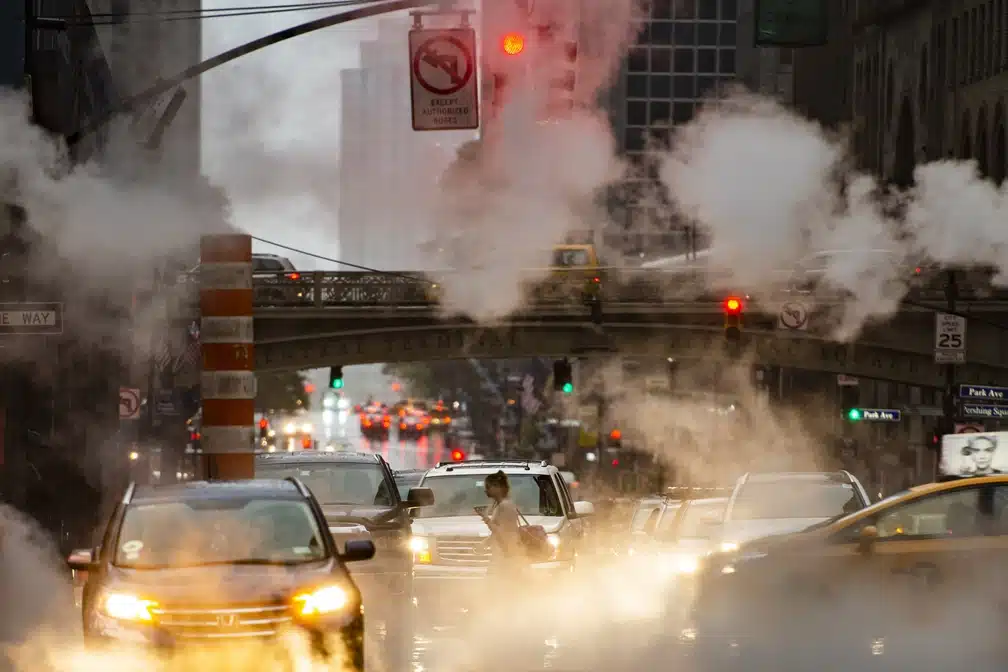July 27, 2024 12:17 am
BRINGING THE AMERICAN TRUCK DRIVER THE LATEST TRUCK DRIVER NEWS
New York City Congestion Charges: TANY Brings Lawsuit to Avoid $36 Fee per Truck
The Trucking Association of New York (TANY) has filed a federal lawsuit to halt the New York City congestion charges for vehicles entering Manhattan.

The Trucking Association of New York (TANY) is challenging the new congestion fee set to take effect on June 30 for vehicles entering Manhattan. On Thursday, TANY filed a federal lawsuit against the Metropolitan Transportation Authority (MTA), arguing that charging truckers up to $36 is unfair and burdensome for drivers making essential deliveries in the city.
The Controversial City Congestion Charges
The new city congestion charges aim to cut traffic and emissions in Manhattan by tolling vehicles entering the central business district below 60th Street. Heavy-duty trucks will face tolls ranging from $24 to $36 during peak hours, while passenger cars will be charged $15. Taxis and for-hire vehicles, like Ubers, will pay between $1.25 and $2.50 per trip, with the cost passed on to passengers.
City officials believe the plan could reduce the number of cars entering the area, estimating around 100,000 fewer vehicles daily. The funds raised are intended for critical subway and public transit upgrades. However, TANY President Kendra Hems argues that truck drivers, who can’t avoid the fee by using alternative transportation like subways or buses, will be disproportionately impacted.
Arguments Against City Congestion Charges
Opponents of the new charge say it hits hardest those least able to afford it, potentially cutting off crucial resources from financially struggling areas.
Claiming the tolling setup is biased and unjust, the truckers’ association has filed a lawsuit to address these concerns. While taxis and for-hire vehicles make up a significant portion of the traffic, their drivers do not directly pay the fees. Instead, customers bear the cost, unlike truckers who must absorb the toll themselves.
“To make the unfairness of this tolling structure even worse, TANY trucks are unable to take advantage of subways and buses to complete their necessary deliveries, so they have no choice but to enter and re-enter the Zone as many times per day as required to meet their customers’ needs,” the lawsuit states.
Joe Fitzpatrick, founder of Lightning Express Delivery Service and a TANY board member, pointed out that the trucking industry moves nearly 90% of products in New York City. With rising expenses, the prices of goods will also go up. Fitzpatrick suggests that the MTA either waive fees for trucks or set a single, lower rate to avoid heavily impacting the industry.
Legal Battles and Broader Opposition
TANY’s lawsuit is just one of several legal challenges to the congestion pricing plan. Small business owners, daily commuters, and the state of New Jersey have all filed lawsuits. They argue that federal authorities approved the tolling plan too quickly, without adequate scrutiny. The opponents claim that the MTA should complete a detailed environmental analysis before moving forward with their plans.
Despite the backlash, the MTA is confident that congestion pricing will proceed as scheduled. All 110 toll readers have been installed, and the transit authority has opened applications for exemptions online. MTA leaders believe the congestion toll will greatly help update New York City’s aging transport network, potentially generating around $15 billion in additional funds.
Impact on Truck Drivers
Truck drivers are bracing for the impact of the upcoming congestion fee. Many worry that rising costs could disrupt delivery schedules. The trucking association has asked the MTA to reconsider its plan and provide better terms for truck drivers, suggesting a single daily toll or charging rates similar to those for passenger cars.
As New York City moves towards implementing congestion fees, there’s a noticeable strain between lawmakers and key industry players. Urban officials aim to ease traffic woes with new policies, while various sectors fear these changes might hinder their daily operations. With the start date just around the corner, the outcomes of these court cases will be critical in determining whether the city congestion charges move forward as planned or requires further adjustments.
Looking Ahead
Trucking companies are pushing back against Manhattan’s new traffic costs, raising important concerns about balancing environmental goals with real-world business needs. While city leaders in New York aim to reduce traffic congestion and emissions, truck drivers and others are advocating for fair solutions that won’t unduly harm vital services. Everyone in the trucking industry and beyond will be closely watching how TANY’s lawsuit and other legal battles unfold.
Recent Posts
Copyright 2024. All Rights Reserved.
